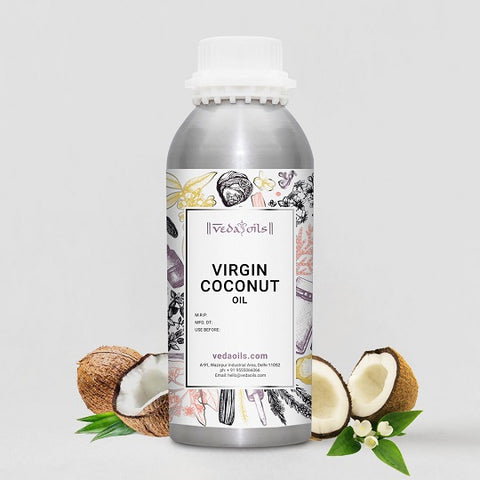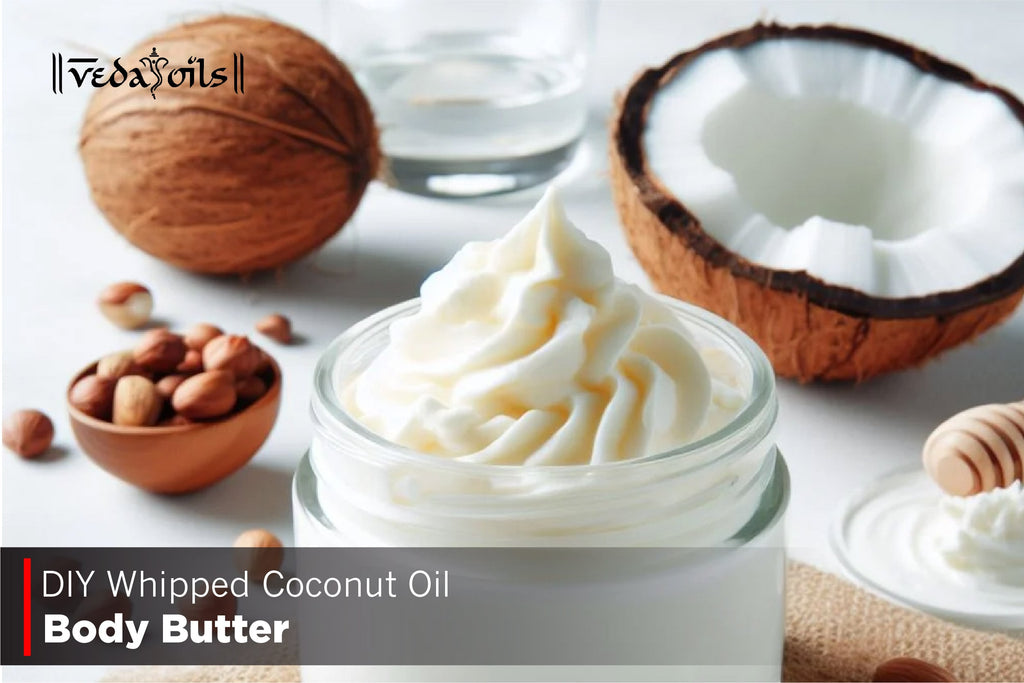Essential Oils For Postpartum - Postpartum Massage
When a mother completes her journey of nine months, the first thing everyone will wish her is congratulations. But most people need to realize that motherhood's journey continues. The postpartum period itself is a transformative but challenging period that demands mothers to care for not just the baby but themselves too.

Essential oils have gained popularity as natural remedies for various postpartum concerns, offering a holistic approach to support physical and emotional well-being during this crucial time. In this blog, we will explore the world of essential oils for postpartum care, delving into their potential benefits and how they can aid in promoting relaxation, healing, and hormonal balance.
Top 9 Essential Oils For Postpartum Depression
Whether you're seeking relief from discomfort, support for mood fluctuations, or simply looking to enhance your self-care routine, we have gathered valuable insights and recommendations to help you harness the power of essential oils for a blissful postpartum experience.
1. Clary Sage Essential Oil For Postpartum
Clary sage essential oil is a valuable ally for postpartum well-being. Additionally, this essential oil may aid in promoting uterine contractions and relieving afterbirth pains. As always, consult a healthcare professional before using it, especially during the postpartum phase.
Its calming and mood-balancing properties can help alleviate stress, anxiety, and hormonal fluctuations often accompanying the postpartum period. Dilute a few drops of clary sage essential oil in a carrier oil and use it for gentle massages or add it to a warm bath for relaxation.
2. Eucalyptus Essential Oil For Postpartum
Whether used in a diffuser, added to a relaxing bath, or diluted and applied topically, Eucalyptus essential oil can offer a rejuvenating experience for new mothers. However, it's essential to consult a healthcare professional before using it, especially if you have any respiratory conditions or sensitivities.
Eucalyptus essential oil can be a valuable addition to your postpartum care routine. This essential oil's refreshing and invigorating scent can help alleviate mental fatigue and promote clarity. It also possesses expectorant properties that can relieve congestion or respiratory discomfort that may arise during the postpartum period.
3. Lavender Essential Oil For Postpartum Healing
Lavender essential oil is a wonderful companion for postpartum healing. This essential oils' soothing properties promote relaxation and help reduce stress and anxiety. It supports wound healing and alleviates discomfort from perineal tears or cesarean incisions.
Adding a few drops of this essential oil to a warm bath, using it in a massage oil, or diffusing it in your space can provide a tranquil and healing ambiance. As always, consult with a healthcare professional before using a lavender essential oil, especially during the postpartum period.
4. Tea Tree Essential Oil For Postpartum
In postpartum care, tea tree essential oil can be a useful tool. It is beneficial for preventing and treating infections that could develop during the healing process because of its antiseptic and antibacterial characteristics.
Tea tree essential oil can be used in a sitz bath to speed up recovery after childbirth or used undiluted as a gentle cleaner for perineal care. Before using it, especially during the postpartum time, you should speak with a healthcare provider to be sure it is appropriate for your circumstances.
5. Lemongrass Essential Oil For Postpartum
Numerous advantages of lemongrass essential oil for postpartum healing. This essential oil's uplifting citrus aroma can brighten your mood and make you feel less stressed and worn out. It relieves perineal discomfort and promotes wound healing because it has antibacterial and analgesic effects.

For a restorative experience, dilute a few drops of lemongrass essential oil in a carrier oil and use it topically or add it to a warm bath. Always get the advice of a medical expert before using it, particularly during the postpartum period, to be sure they are appropriate for your particular situation.
6. Rosemary Essential Oil For Postpartum Hair Loss
Its stimulating properties can help improve circulation to the scalp, promote hair growth, and strengthen hair follicles. Dilute a few drops of rosemary essential oil in a carrier oil and massage it into the scalp to nourish and revitalize the hair.

Rosemary essential oil can benefit postpartum hair loss, a common concern for many new mothers. However, always consult with a healthcare professional before using it, especially during the postpartum period, and be mindful of any allergies or sensitivities.
7. Peppermint Essential Oil For Postpartum Urinary Retention
Peppermint essential oils cooling and soothing properties help relax the urinary tract muscles, promoting better urine flow. Dilute it in a carrier oil and gently massage it on the lower abdomen, or add a few drops to a warm bath for relaxation.

Peppermint essential oil can relieve postpartum urinary retention, a condition some women may experience. However, it's essential to consult with a healthcare professional before using it, especially postpartum, to ensure it's safe and suitable for your situation.
8. Evening Primrose Oil For Postpartum
Gamma-linolenic acid (GLA), an omega-6 fatty acid that can aid in hormone regulation and inflammation reduction, is abundant in evening primrose oil.

Due to its possible hormonal balance and general well-being advantages, evening primrose oil is frequently suggested for postpartum care. It helps many women recuperate after giving birth by easing breast pain, lowering mood swings, and encouraging healthy skin.
9. Virgin Coconut Oil For Postpartum
Virgin coconut oils moisturizing properties help nourish and hydrate the skin, benefit perineal care and soothe any dryness or discomfort. However, it's important to consult a healthcare professional before using it, especially if you have allergies or sensitivities.

Virgin coconut oil can be a beneficial addition to your postpartum routine. This oil can also be used as a natural nipple balm to prevent and treat cracked nipples during breastfeeding. Additionally, incorporating it into your diet may provide essential nutrients and support postpartum health.
How To Use Essential Oils For Postpartum?
In this guide, we'll explore different ways to use essential oils for postpartum care and provide some safety tips to ensure a positive experience. Remember, every individual is unique, so what works for one person may not work for another. It's crucial to listen to your body and adjust your usage accordingly.
- Topical Application: Essential oils are highly concentrated and should always be diluted before use. Mix a few drops of essential oil with a carrier oil, such as coconut or sweet almond oil, before applying topically. Apply diluted essential oils to the desired area by gently massaging them into the skin. Common areas for postpartum application include the abdomen, perineum, and temples. Remember to perform a patch test first and discontinue use if any adverse reactions occur.

- Aromatic Diffusion: Use a diffuser to disperse essential oils into the air, creating a soothing and aromatic environment. This can help promote relaxation, reduce stress, and improve mood. Follow the manufacturer's instructions for your diffuser's safe and proper use.
- Baths: Taking a warm bath can be a relaxing and rejuvenating experience postpartum. Add a few drops of essential oil to your bathwater, but ensure the oil is well-diluted and mixed with a dispersing agent like Epsom salts, milk, or a carrier oil to help disperse the oil in the water. Lavender or ylang-ylang can be excellent choices for a soothing bath.
Conclusion
In conclusion, essential oils can be useful postpartum care products that provide all-natural, holistic support for women going through this transforming time. Essential oils can offer a variety of advantages, including relief from discomfort, hormone balance, relaxation, and skincare. Before introducing essential oils into your postpartum routine, prioritize safety and speak with a healthcare provider because individual circumstances can differ.
You May Also Like:
Buy Products
-
 Evening Primrose Oil
Evening Primrose Oil -
 Lemongrass Essential Oil
Lemongrass Essential Oil -
 Peppermint Essential Oil
Peppermint Essential Oil -
 Rosemary Essential Oil
Rosemary Essential Oil -
 Virgin Coconut Oil
Virgin Coconut Oil
Related Articles
Disclaimer :- This article is intended for informational and educational purposes only and should not be considered a substitute for professional medical advice. For specific health concerns or treatment, please consult your personal physician. The article's editor, writer, and VedaOils organization do not assume any responsibility for any health outcomes resulting from the information provided. Readers are strongly encouraged to seek advice from their physician before acting on any recommendations made in these articles.
















 Sign in
Sign in Register now
Register now My Reward Points
My Reward Points













